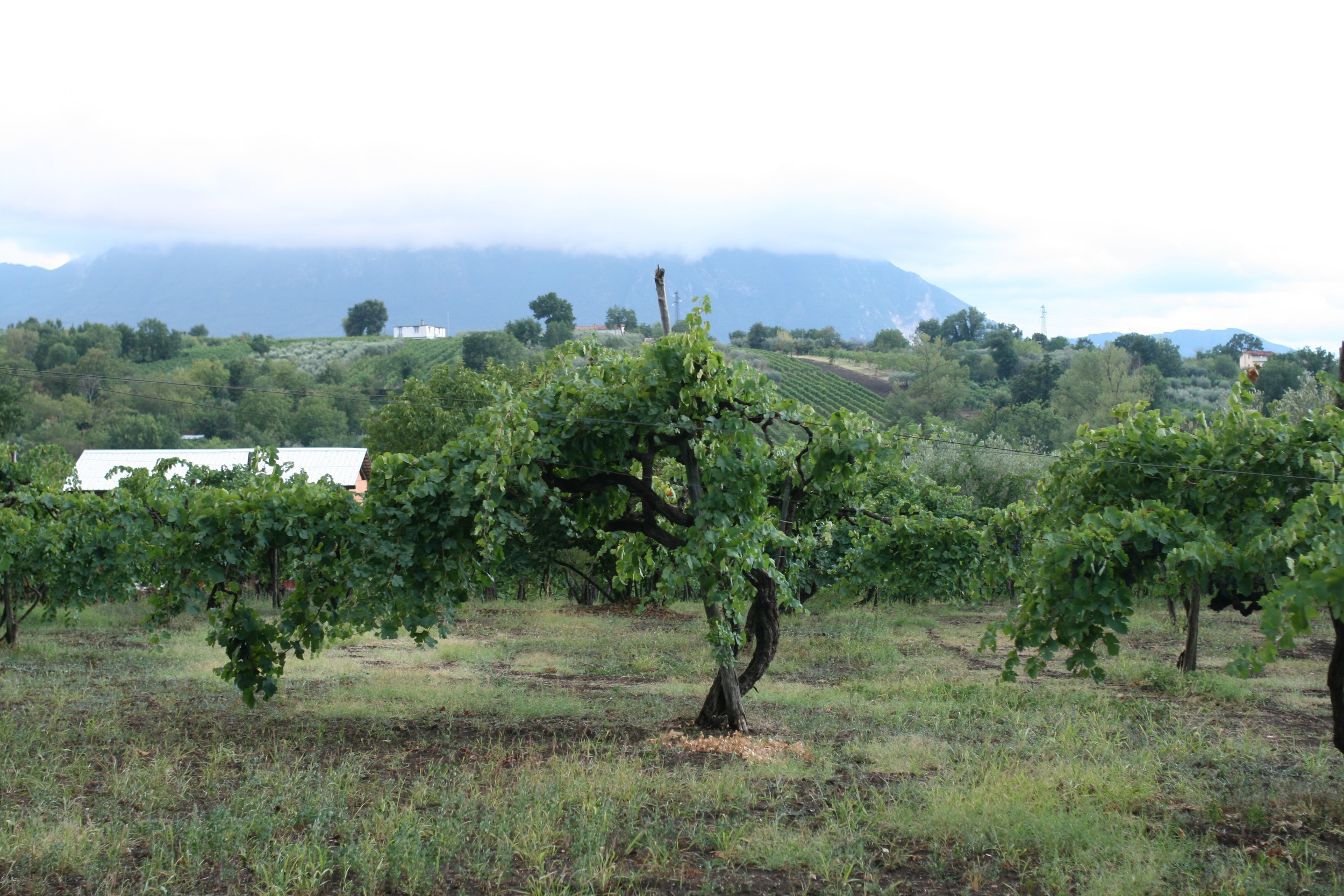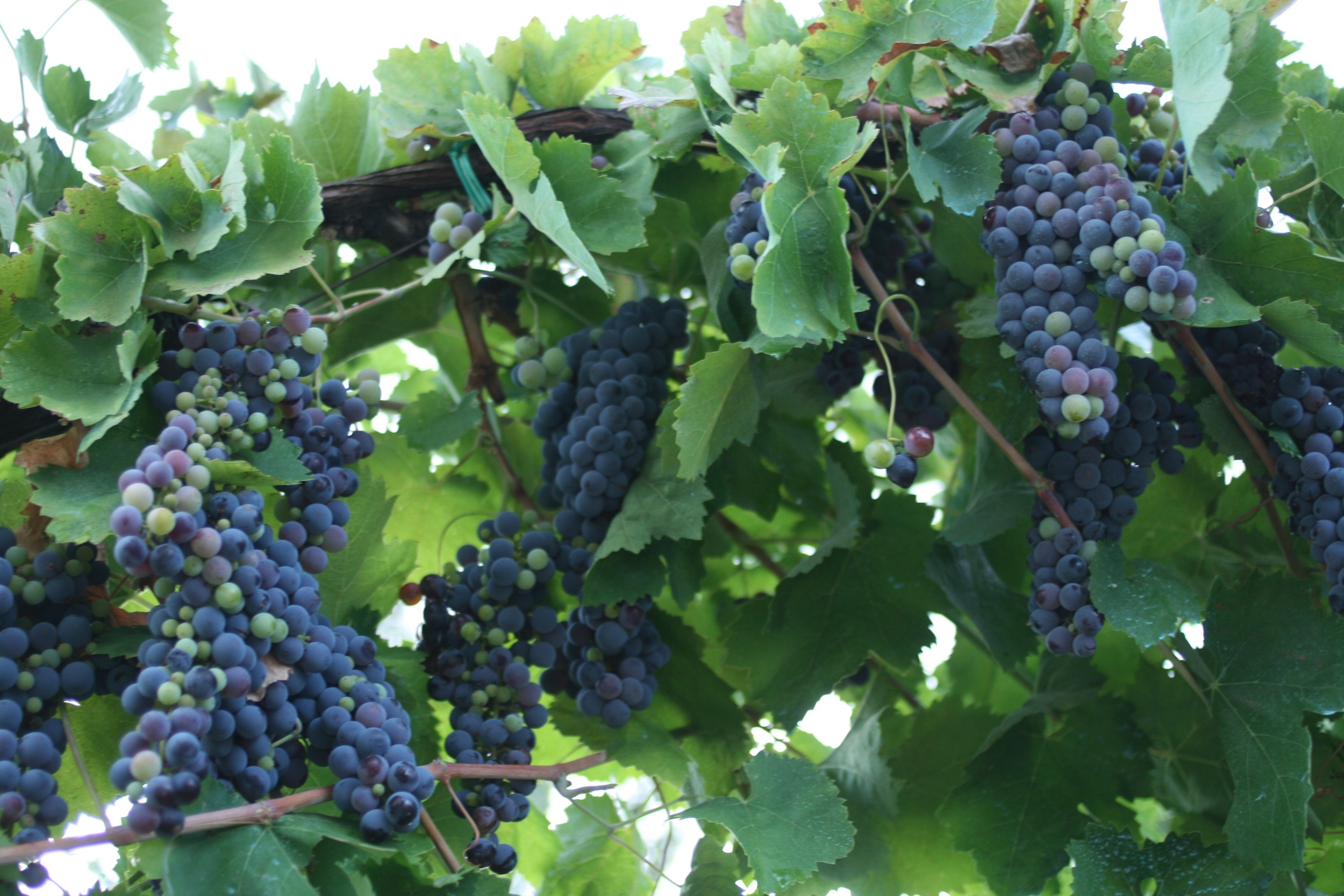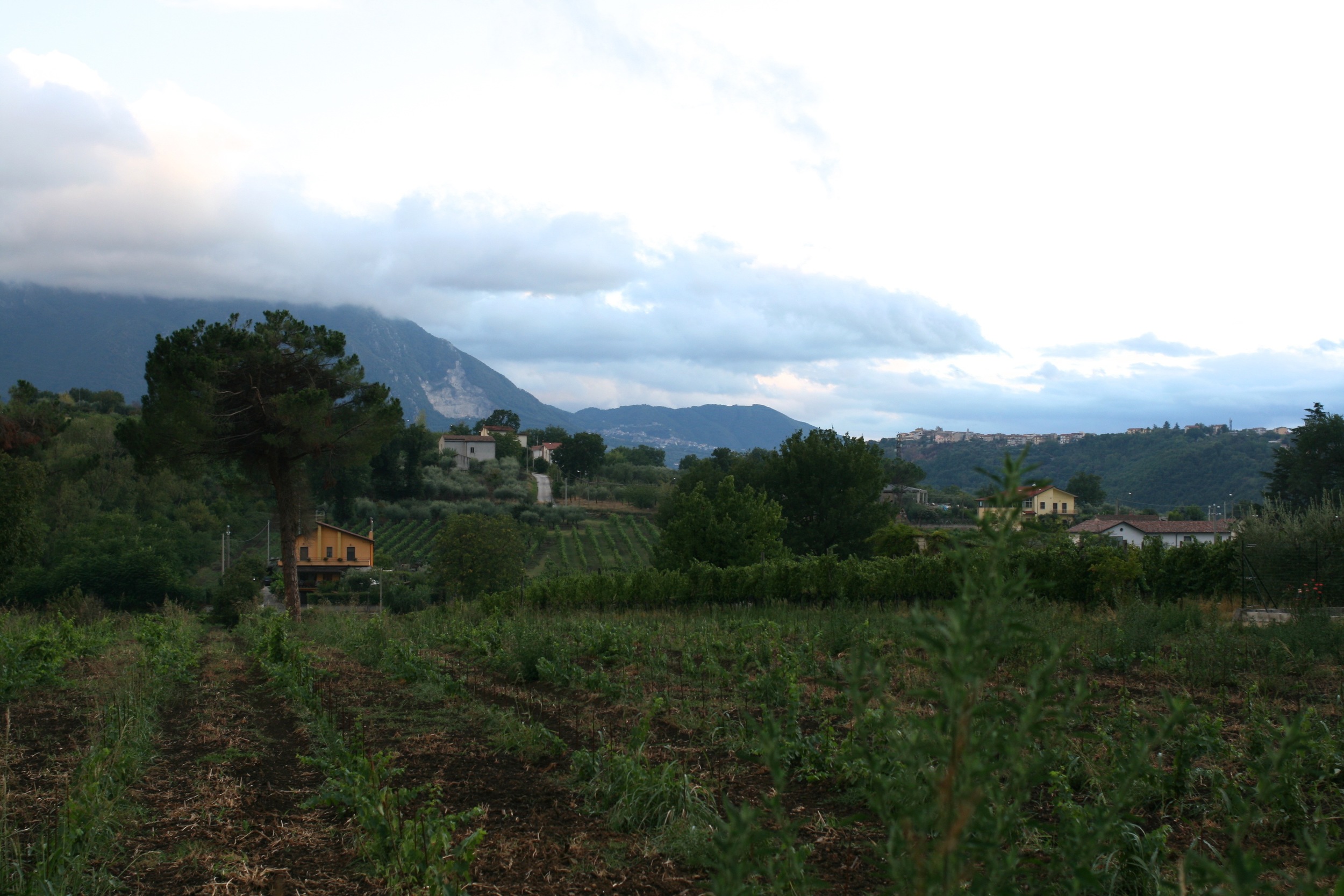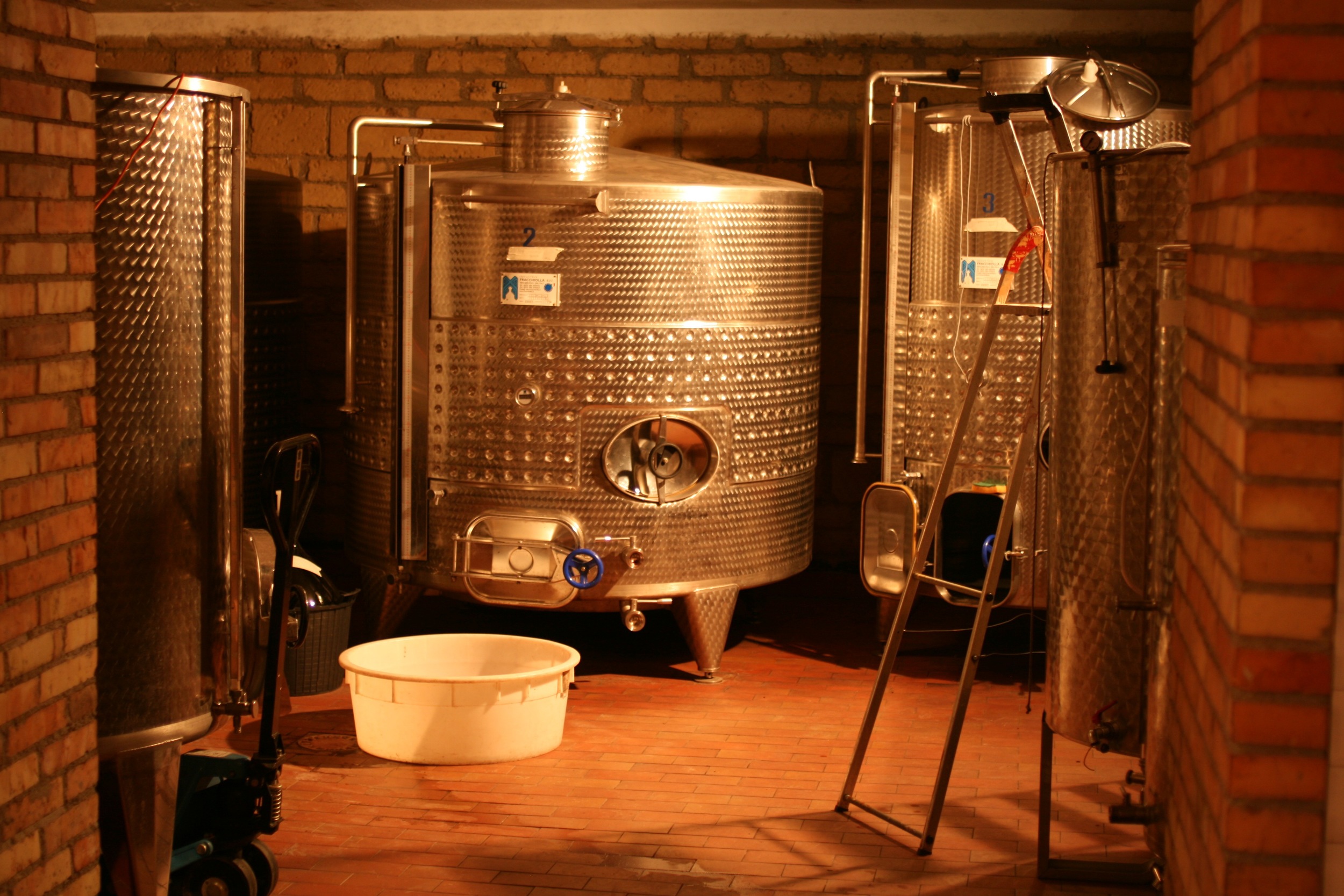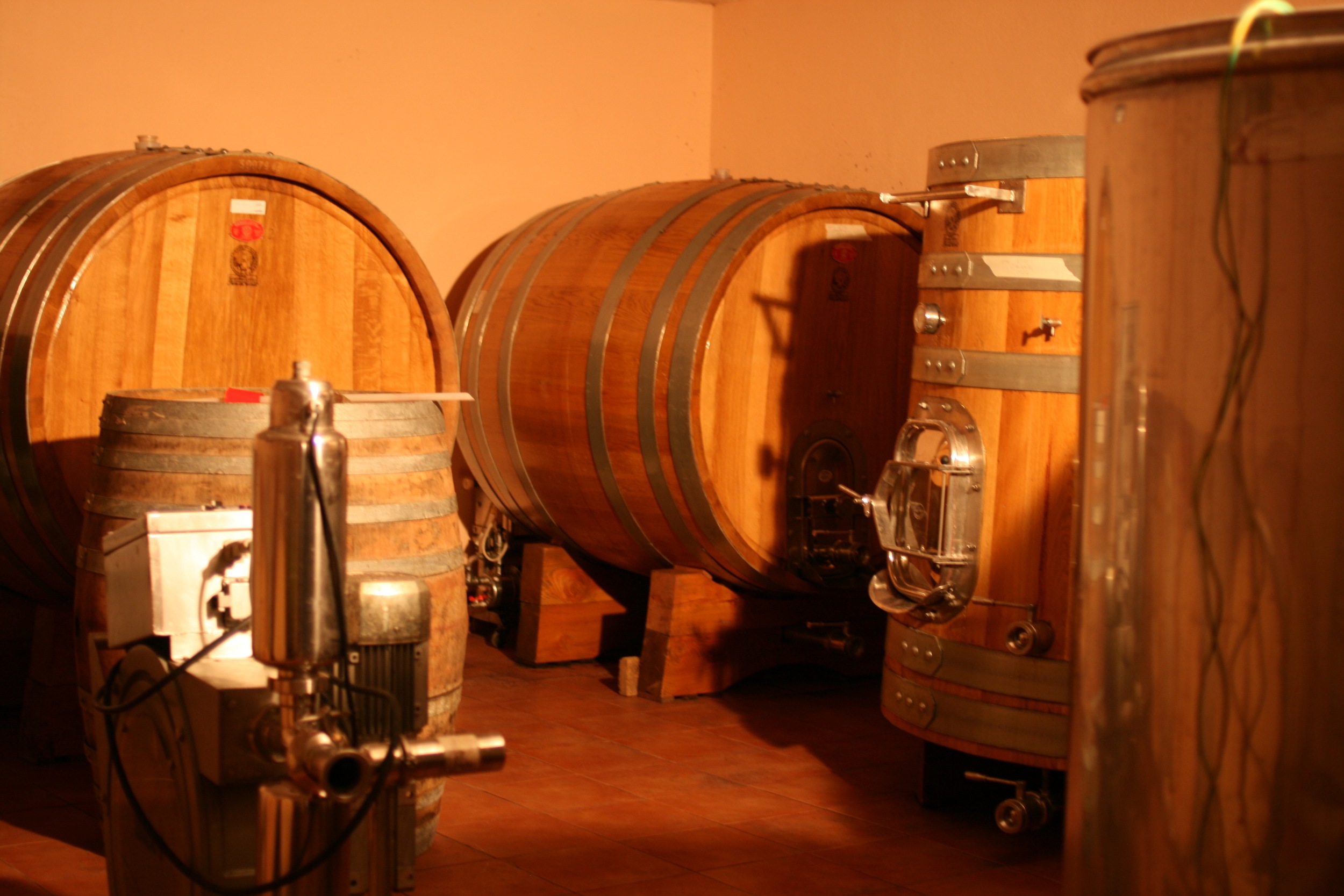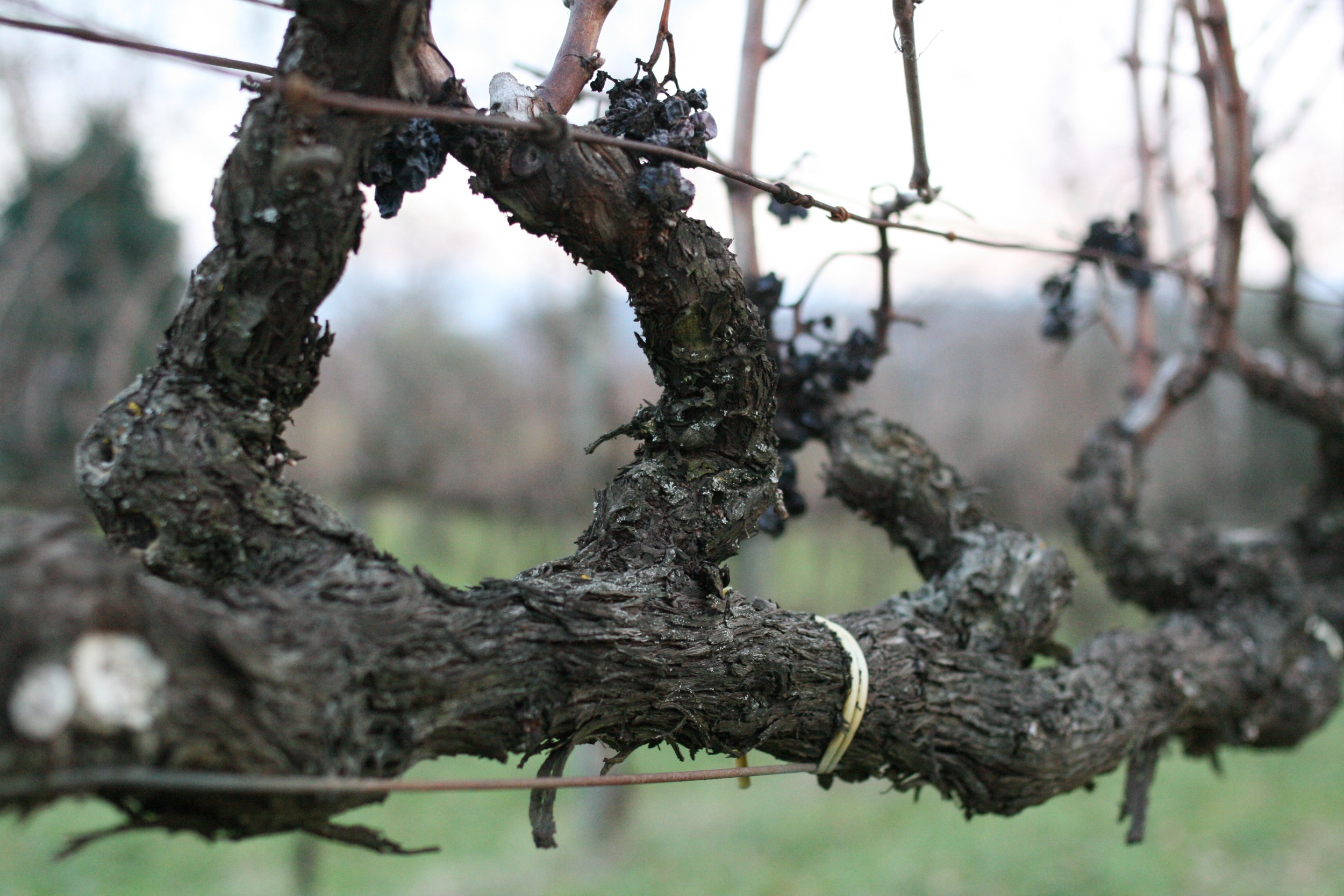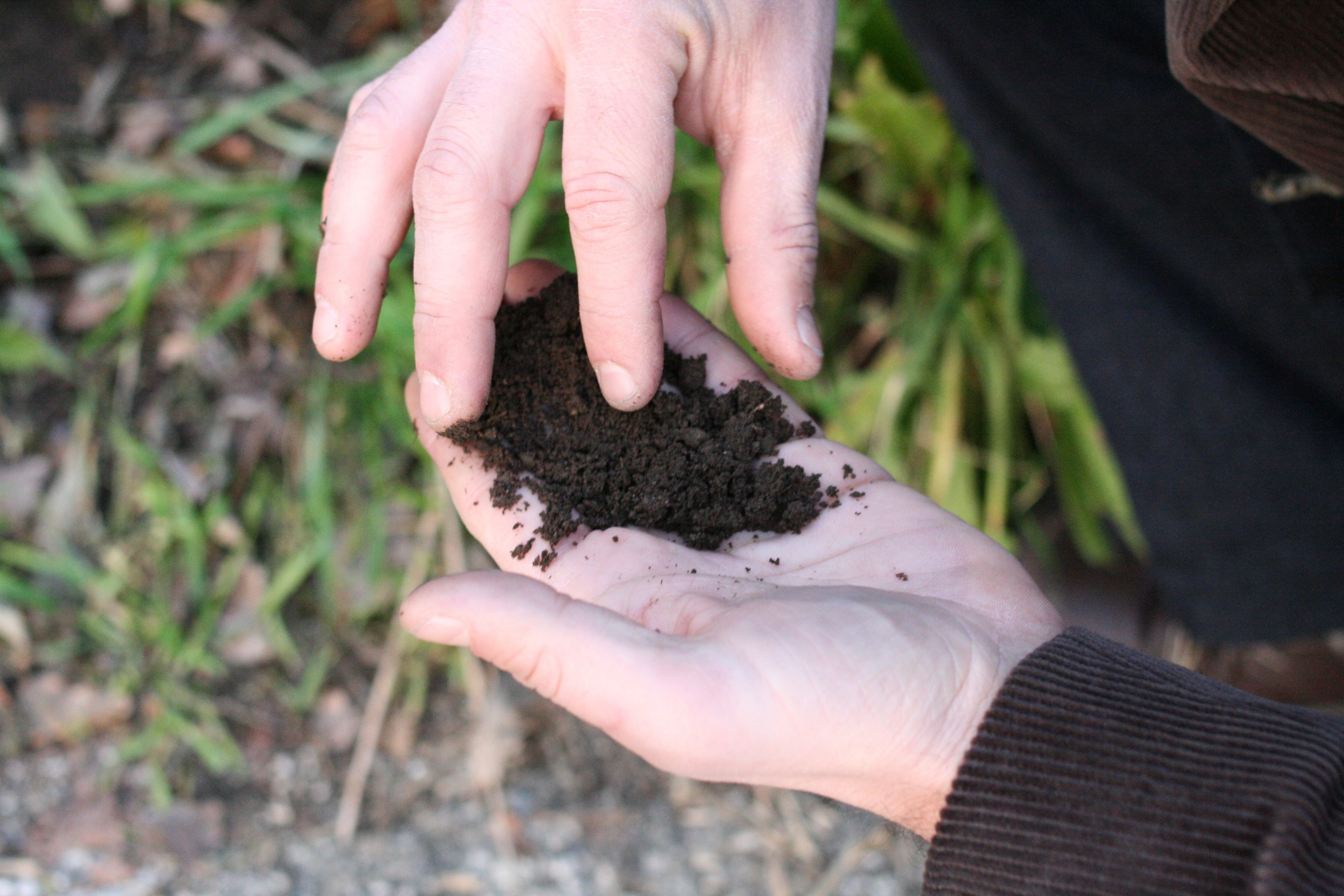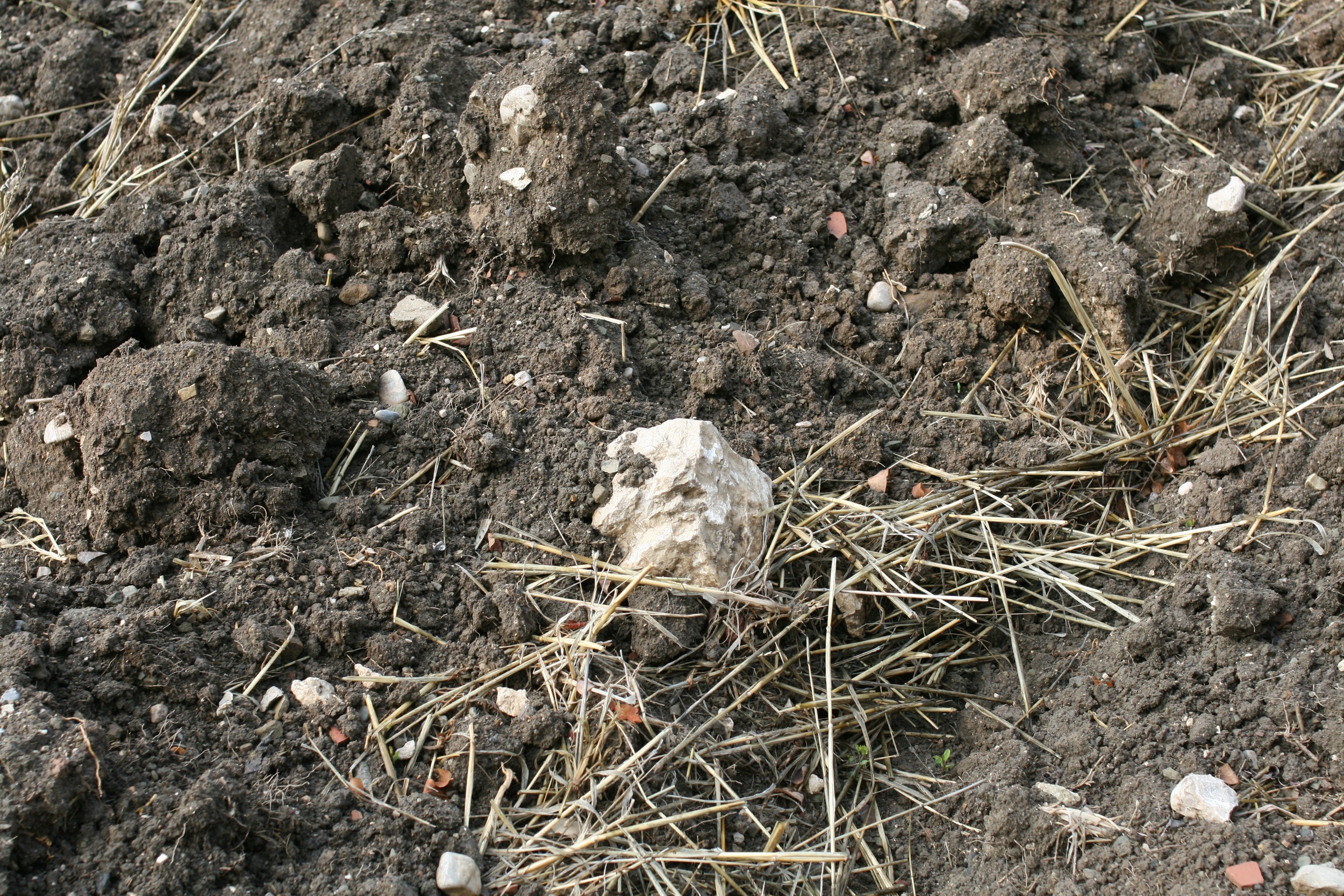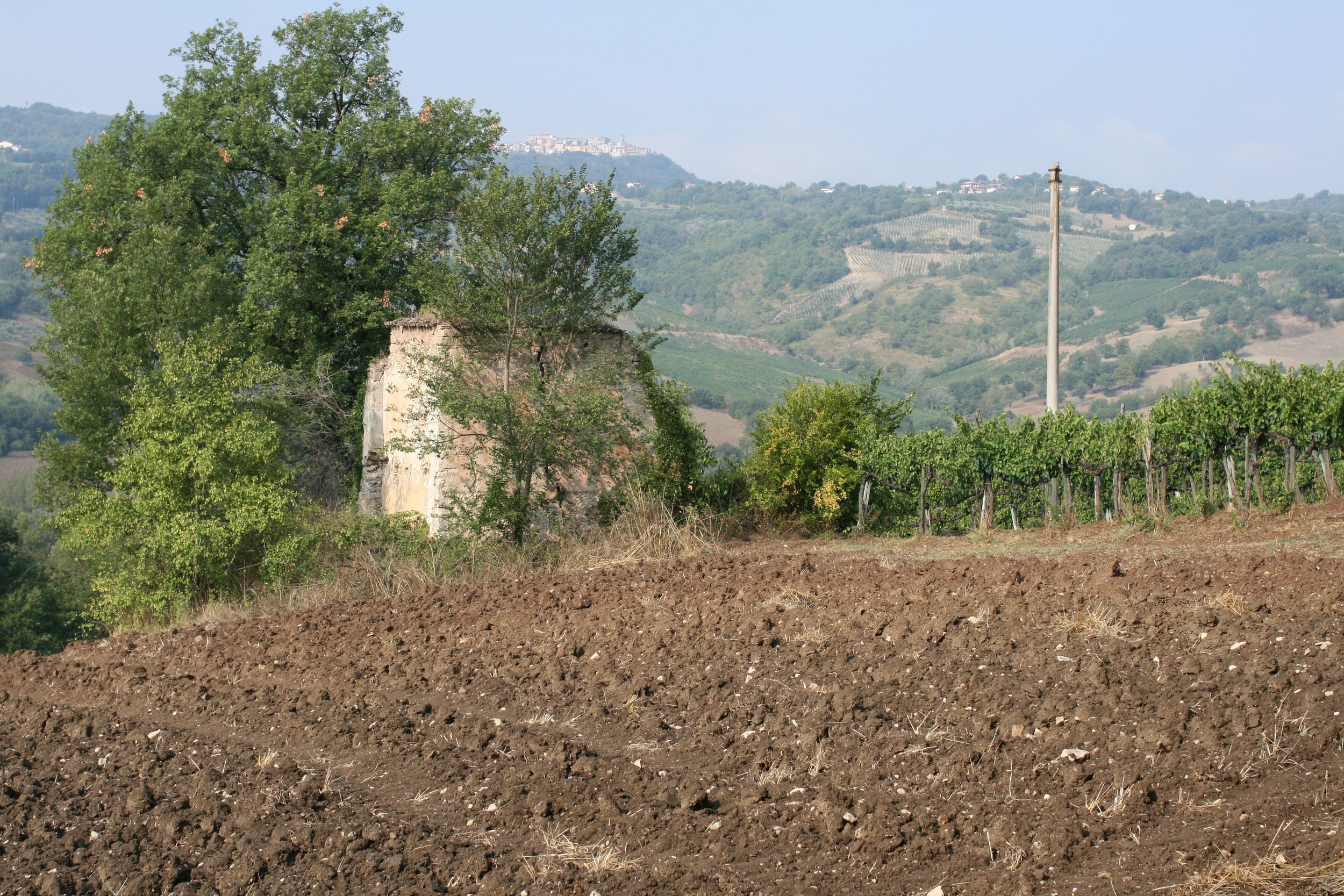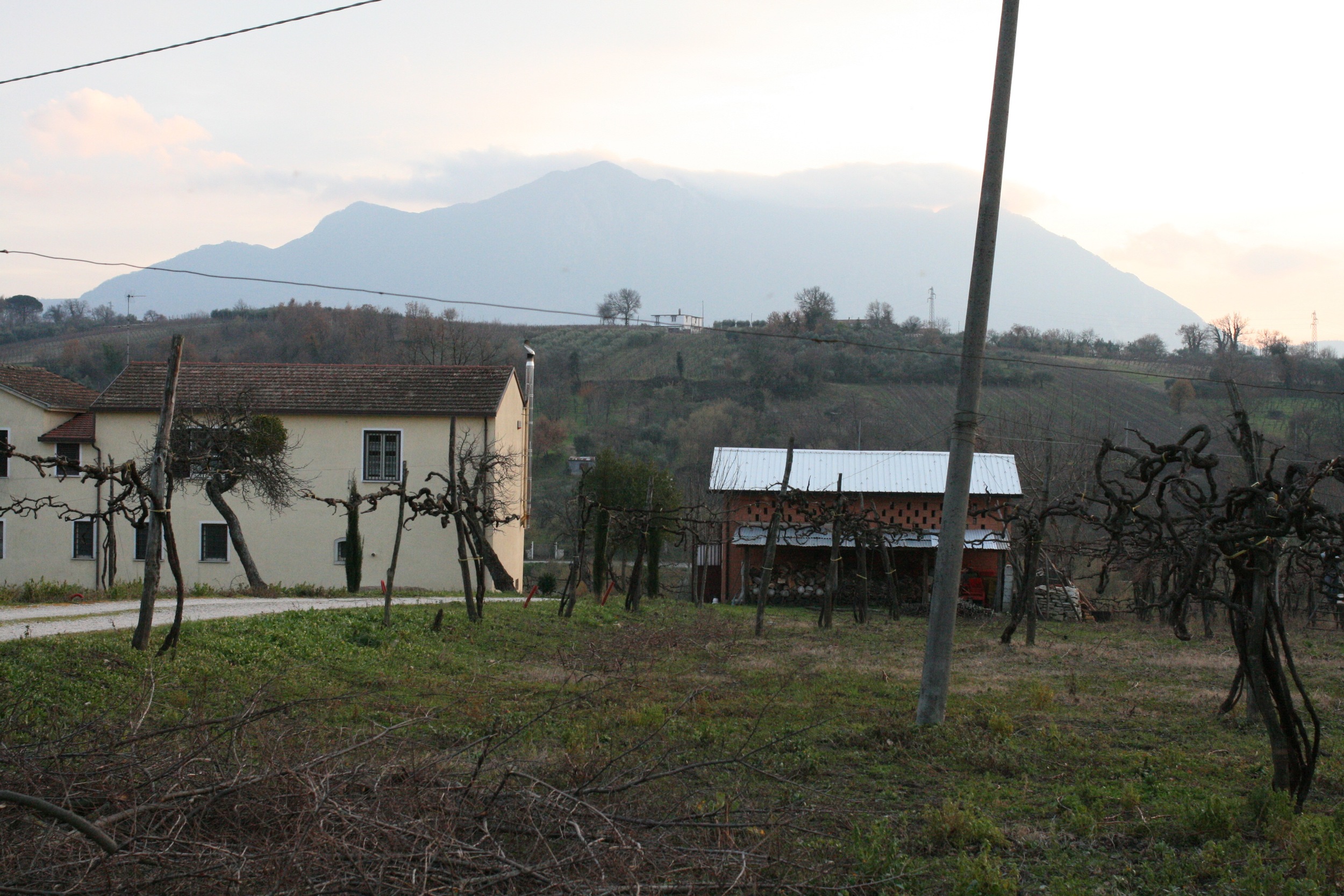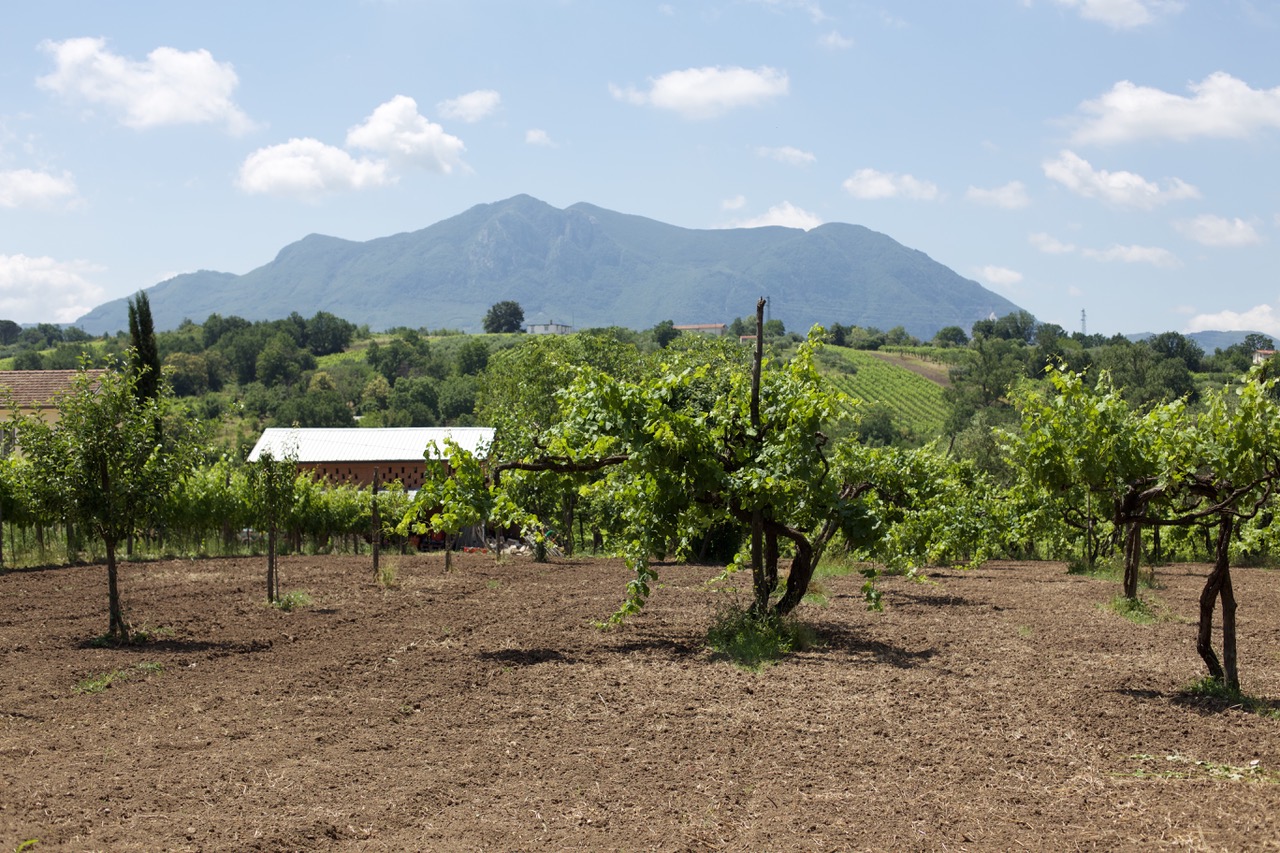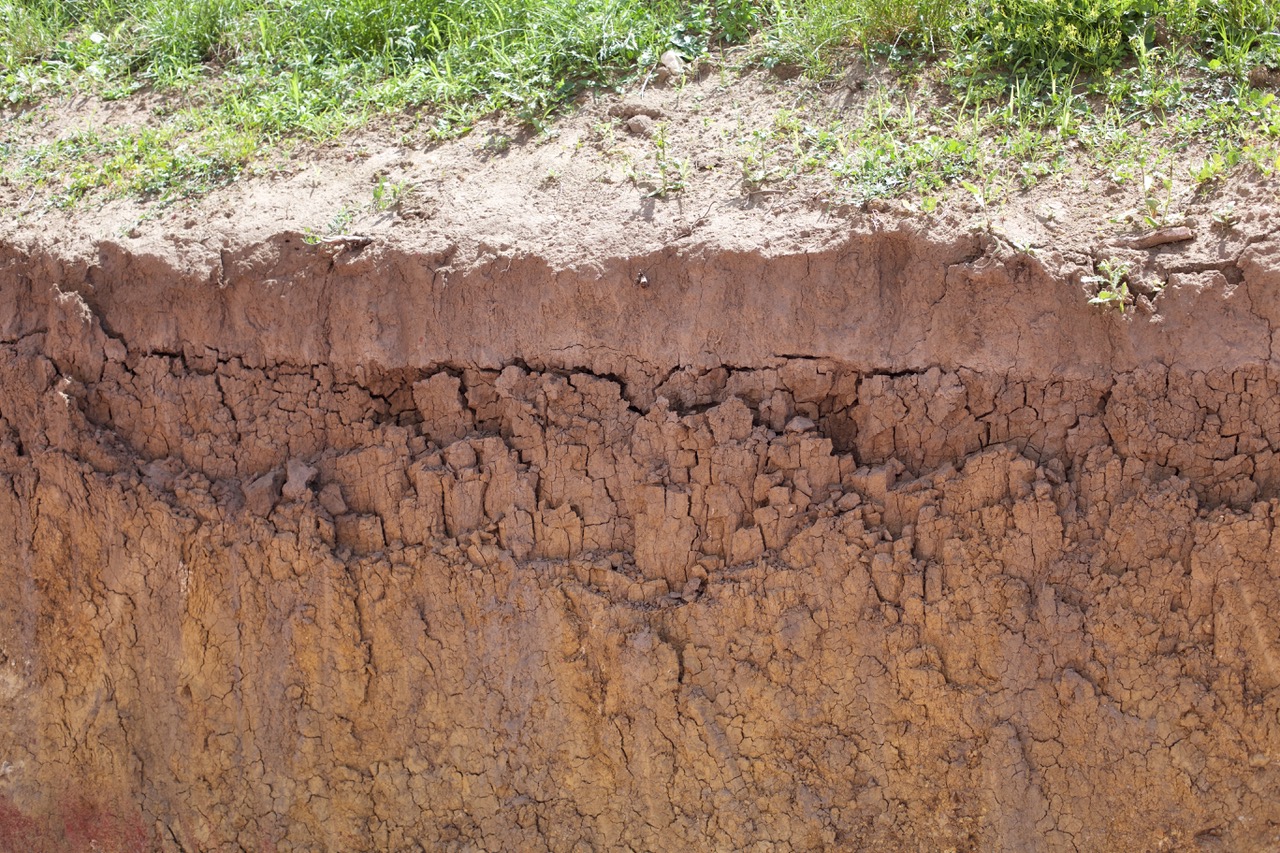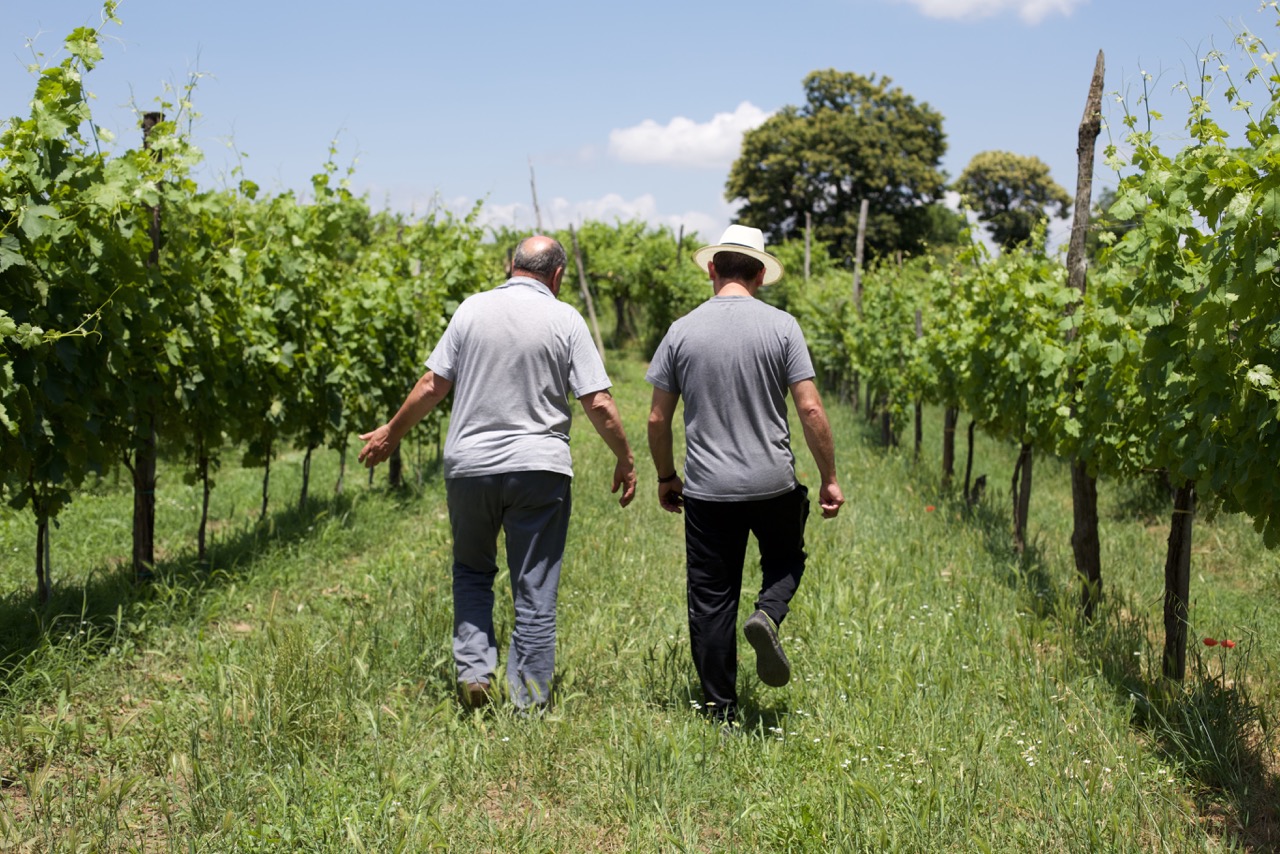Contrade di Taurasi
_____________________________________________
Organic viticulture
Extremely low sulfite usage
Aged above and beyond appellation requirements
_____________________________________________
About Contrade di Taurasi:
There are many recent surprises in the region of Campania, which is perhaps the most improved winemaking area in Italy, but one thing has not changed: the wine made from the Aglianico grape grown around the village of Taurasi is still one of the glories of Italian viticulture.
Contrade di Taurasi is owned by Sandro Lonardo, a schoolteacher, and his wife Enza. They make Irpinia Aglianico, Taurasi, and small amounts of a white wine made from Grecomusc’, an indigenous white variety (grown ungrafted, interestingly). Their vineyards are all exposed directly south, which is ideal, and are at about 1300 feet above sea level, which may explain how a wine picked in the beginning of November in a warm climate can come in at relatively modest alcohol (between 13 and 13.5% in most vintages).
From Ian d’Agata on his website, TerroirSense.com:
'At Cantina Lonardi, also known as Contrade di Taurasi, they have a long history of making outstanding Taurasi wines: in fact, their “regular” Taurasi is usually excellent, and they also make a Taurasi Vigne d’Alto, a wine that in the 2016 vintage is not that inferior to the Taurasi Coste, if at all. Last but not least, this winery deserves credit and will be forever remembered by wine lovers everywhere for having resurrected the long-forgotten Roviello white grape (locally known as Grecomusc’), another in an incredibly long, mind-boggling list of unique and noble native wine grapes that Italy had, somewhat culpably, stopped paying attention to during the twentieth century. But its people like those at Cantina Lonardo that help set things right. And we are grateful.
_____________________________________________
The Wines:
Aglianico, Irpinia Doc
All of Sandro’s vineyards are in the official Taurasi zone, but more than half of the fruit is declassified to Irpinia Aglianico. This improves the Taurasi and gives us an excellent, more forward example of Aglianico to drink while we're waiting for the Taurasi.
The Irpinia shows the distinctive flavors of the area - blackberry/raspberry fruit balanced with fresh acidity, a savory character that I associate with volcanic soils, and a rounder, more forward structure than Taurasi itself. Drink now or in 3-5 years with red meats or substantial pasta dishes.
Taurasi 'Vigne Alto' DOCG
Contrade di Taurasi also produces two single-site bottlings of Taurasi. The ‘Vigna Alto’ is defined by soil that is entirely volcanic 'cinders', while the soil of the ‘Coste’ site is limestone and clay. As has happened with Nebbiolo, some producers are finding that traditional but clean winemaking (warm fermentations, long aging in large barrels) can work wonders with tannic varieties. These two single vineyard Taurasis are certainly big wines, but the tannins remind one of very good dark chocolate, which is to say savory and not at all bitter.
The Vigna d'Alto site is defined by soil that is entirely volcanic, with no clay or limestone. Exhibits notes of black cherry, wild fennel, sweet spice, and new leather. Structured and polished, combining power and finesse — delicious now but will continue to develop complexity. Perfect with grilled, roasted, or braised meat.
Taurasi DOCG
Taurasi is perhaps southern Italy's most famous red wine appellation. The Aglianico grape, blended or alone, makes interesting wines all over southern Italy, but in Taurasi the volcanic soils and altitude make a wine of extraordinary power, complexity and freshness. The Lonardo family makes one of the best examples of Taurasi I have drunk, cleanly made but complex, intriguing and fine. Serious red-black color; aromas of berries, Japanese salt plum, expensive leather, cocoa, woody herbs (bay? lavender?); big, broad-shouldered wine on the palate. Drink now with roasted or braised meat, or age for 10 ++ years for a real treat.
Taurasi 'Coste' DOCG
All of the Lonardo’s vineyards are in the official Taurasi zone, but more than half of the fruit is declassified to IGT Aglianico. This improves the Taurasi’s focus. The Coste site is defined by soil that is clay and limestone, rather than volcanic. Exhibits notes of black cherry, wild fennel, sweet spice, and new leather. Structured and polished, combining power and finesse — delicious now but will continue to develop complexity. Perfect with grilled, roasted, or braised meat. www
Grecomusc’
Sandro Lonardo also makes a tiny amount of a white wine called ‘Grecomusc', which is made from a variety called Roviello Bianco (Grecomusc' by the locals). The variety is indigenous to the town of Taurasi and the villages around Taurasi; as far as we know, Lonardo is the only producer actually marketing the wine. He buys the fruit from various small farmers who have a few rows each, the vines ranging from 70 to over 100 years old, all ungrafted. Total production of wine made from this variety in reaches perhaps 250 cases a year, Lonardo being responsible for almost 200 cases a year.
Rarity does not necessarily confer quality, but in this case they do go together. Lonardo's Grecomusc' is distinctive, excellent white wine, showing striking complexity in aroma and flavor, great length, and excellent fresh acidity. Notes include almond, citrus skin and apple, as Sandro says, but also a beeswax note reminiscent of fine Chenin Blanc. This is one of the most interesting white wines we import.
_____________________________________________
more information:
Visit the Contrade di Taurasi Website

